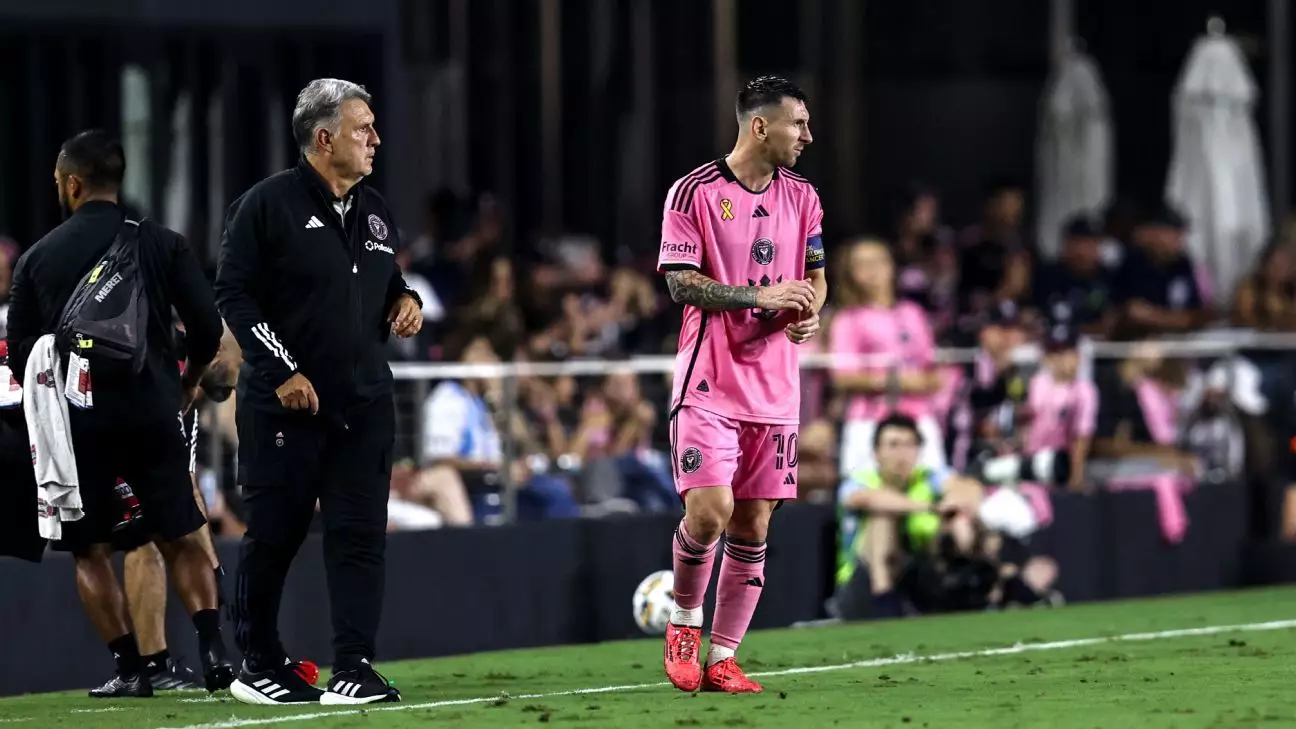In the world of elite football, the Ballon d’Or stands as one of the most coveted awards, celebrating individual brilliance over an entire season. Recently, Inter Miami’s head coach Gerardo “Tata” Martino emphasized the remarkable achievements of Vinícius Júnior, a player whose performance this past season at Real Madrid has seemingly positioned him as a frontrunner for the prestigious accolade. At just 24, Vinícius showcased his extraordinary abilities by scoring 24 goals and contributing 11 assists, certainly making a case for his recognition among the sport’s elite. His pivotal role in securing a Champions League title last season only solidifies his standing, demonstrating the delicate balance between team achievements and individual accolades.
However, the discussion inevitably drifts toward the indomitable legacy of Lionel Messi. Despite his absence from the 2023 Ballon d’Or nominations, which marks a rare moment since 2003, his former teammate Jordi Alba expressed disbelief at his exclusion, asserting that “Leo always has to be there.” Martino further reiterated this sentiment, calling Messi “the best” despite acknowledging Vinícius’s merits. Herein lies the crux of the debate: can one truly separate historical achievement from current performance? While Messi’s trajectory continues to dazzle, leading him to be a finalist for the MLS MVP award after scoring an impressive 20 goals and providing 16 assists in merely 19 appearances, the absence from the Ballon d’Or nominations could be seen as a shift in the recognition of his ongoing impact.
Martino’s remarks point toward a broader philosophical question regarding the nature of the Ballon d’Or itself. His candid reflection around the ambiguity surrounding what constitutes “the best”—is it the best of the year or simply the best player—invites more scrutiny into the voting and criteria behind the award. The phrase “the best” holds unique meaning to different fans, pundits, and players, which may further complicate how such accolades are perceived and awarded. This nuance is essential; with more eyes than ever training on emerging talents and longstanding legends alike, determining “the best” player could risk devolving into a popularity contest rather than a true reflection of skill.
As MLS continues to grow in popularity and quality, figures like Messi and Vinícius are crucial in shaping the game’s future narrative. With Messi now adjusting to life in Miami, his influence transcends just scoring; he acts as an ambassador for the sport, attracting interest and respect for the league. Meanwhile, the emergence of young stars like Vinícius reinvigorates the conversation about potential successors to Messi’s legacy in the footballing world. The future of the Ballon d’Or will likely remain controversial—one thing is certain: both players contribute enormously to football’s evolving landscape, and their legacies will continue to be revered irrespective of individual awards.
